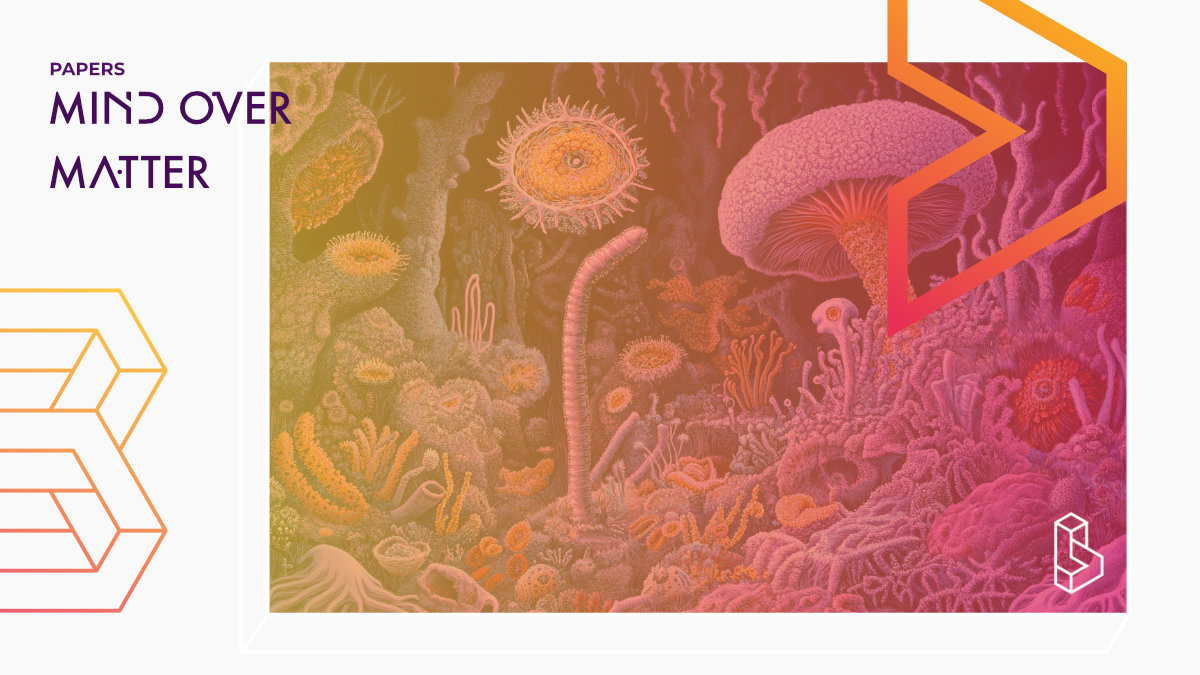This review (2024) examines the potential role of the gut microbiome in mediating the effects of psychedelic drugs on behaviour. It argues that the current understanding of psychedelic mechanisms, focused primarily on serotonin 2A receptor agonism, is incomplete and needs to incorporate the gut microbiome and its (two-way) interactions with the brain.
Abstract of Mind over matter
“Psychedelics have emerged as promising therapeutics for several psychiatric disorders. Hypotheses around their mechanisms have revolved around their partial agonism at the serotonin 2 A receptor, leading to enhanced neuroplasticity and brain connectivity changes that underlie positive mindset shifts. However, these accounts fail to recognise that the gut microbiota, acting via the gut-brain axis, may also have a role in mediating the positive effects of psychedelics on behaviour. In this review, we present existing evidence that the composition of the gut microbiota may be responsive to psychedelic drugs, and in turn, that the effect of psychedelics could be modulated by microbial metabolism. We discuss various alternative mechanistic models and emphasize the importance of incorporating hypotheses that address the contributions of the microbiome in future research. Awareness of the microbial contribution to psychedelic action has the potential to significantly shape clinical practice, for example, by allowing personalised psychedelic therapies based on the heterogeneity of the gut microbiota.”
Authors: Giorgia Caspani, Simon G.D. Ruffell, WaiFung Tsang, Nigel Netzband, Cyrus Rohani-Shukla, Jonathan R. Swann & Wilfred A. Jefferies
Summary of Mind over matter
The Microbiota-Gut-Brain Axis
The human body harbours a vast and diverse community of microorganisms, primarily residing in the gastrointestinal tract, collectively known as the gut microbiota. This complex ecosystem plays a crucial role in human health, influencing digestion, immune system development, and even brain function. The gut-brain axis describes the bidirectional communication network between the gastrointestinal tract and the central nervous system. This intricate crosstalk is mediated by various pathways, including the immune, endocrine (HPA axis), and neural systems, particularly the vagus nerve.
The gut microbiome exerts a “bottom-up” influence on brain function and behaviour, impacting factors like feeding patterns and obesity. Conversely, psychological states can influence gut function and microbial composition, as exemplified by the effects of stress on gastrointestinal motility and permeability.
Numerous studies have demonstrated the link between gut microbiome composition and various mental health conditions, including depression, post-traumatic stress disorder (PTSD), and Parkinson’s disease. Moreover, research has shown that transferring faecal microbiota from individuals with certain conditions to germ-free animals can induce similar behavioural and physiological changes in the recipient animals, highlighting the causal relationship between microbiome composition and behaviour.
Find this paper
Mind over matter: the microbial mindscapes of psychedelics and the gut-brain axis
https://doi.org/10.1016/j.phrs.2024.107338
Open Access | Google Scholar | Backup | 🕊
Cite this paper (APA)
Caspani, G., Ruffell, S. G., Tsang, W., Netzband, N., Rohani-Shukla, C., Swann, J. R., & Jefferies, W. A. (2024). Mind Over Matter: The Microbial Mindscapes of Psychedelics and the Gut-Brain Axis. Pharmacological Research, 107338.

